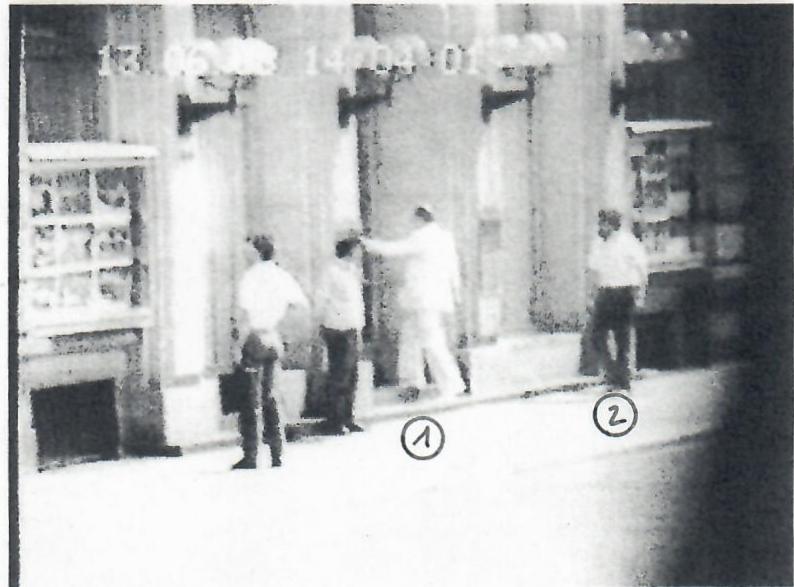The communist dream vanished in most of the world in 1989-1991. Arguably, it was gone in the rest of the world by the late 1990s, though some states, such as China, Vietnam, and Cuba, still claim to be ruled by communist parties. In this final section of the seminar we will consider two topics. First, we will ask why the communist dream vanished when it did. Second, we will ask what it means to say it vanished. These are important questions for understanding the life and death of all political systems.
24. Thursday, April 16
Today, we will discuss the long life of communism. Please watch these two films before class. What insight do they give you into why communist systems lasted for as long as they did? Where do we see signs in the two films that the believe in the communist dream was waning?
Both of these films are available under Hesburgh Reserves. Since we will not have any print readings to discuss, please take notes while you are watching these films.
FILM: “Journey to Russia”
FILM: “The Lives of Others”

The Stasi follows one of the authors in your readings. Who is he?
27. Tuesday, April 21
Discussion: In this section, we deal with the fall of communism between 1989 and 1991. Rather than hashing out all the details of various countries’ experiences, I want to focus on two interacting explanations for these events: one from above (Gorbachev) and the other from below (the element of ‘surprise’ which Kuran describes). For this entire discussion, please keep in mind Havel’s argument about the transition from living within a lie to living within the truth.
-
-
-
-
- Gorbachev Speaks! READ
- Richard Sakwa: “The Soviet Collapse: Contradictions and Neo-Modernization” READ
- Timur Kuran, “Now out of Never: The Art of Surprise in the East European Revolutions” World Politics (1991) PRINT AND READ
- A. James McAdams, Vanguard of the Revolution: Chapter 12
- Joseph Loconte, “Judgment Day: The Collapse of Soviet Communism: READ
- Gorbachev Speaks! READ
-
-
-
29. Thursday, April 23
Discussion: Was it just a dream? As our journey draws to a close, I would like you to think about the big picture. What does it mean to say that communism is over. Is it? More broadly, what can it mean to say that the era of grand ideologies is over? Can it mean anything? Or do these grand ideologies just continue on?
-
-
- Vaclav Havel, “Power of the Powerless”: RE-READ the final three chapters. How is Havel talking about our world, not just their world?
- “After communism,” The Economist, December 21, 2002 READ
- Augusto Del Noche, “Marxism Died in the East because it realized itself in the West” PRINT AND READ
- Francis Fukuyama, “The End of History”: READ the Preface and Sections 3, 4, and 5.
- A. James McAdams, Vanguard of the Revolution: Chapter 13
-
27. Tuesday, April 28
The Rise and Fall of Communism: Revisited.
What lessons has our seminar conveyed about human nature? What lessons has it conveyed about the human condition?
For this, our last meeting, I invite you to choose the readings and the way you want to conduct our discussion. I will sit back and listen and learn.
The Readers’ Choice Awards!
Elaine Replogle, “Reference Groups, Mob Mentality, and Bystander Intervention: A Sociological Analysis of the Lara Logan Case,” Sociological Forum, Vol. 26, No. 4 (DECEMBER 2011), pp. 796-805. READ through JSTOR in Hesburgh Library
Clay Shirky, “The Political Power of Social Media” READ
Marie Whitaker, “Rural America and a Silent Majority powered Trump to a Win” READ
“CERC: Psychology of a Crisis” READ
Vox: The Legacy of the Pandemic: Ten Ways it will change our lives” READ
Your Final Essay Assignment is HERE
NOTE: Please leave your technology at home. This includes electronic devices of any kind, such as laptops, Kindles, i-Pads, I-phones, video cameras, video games, dog fences, or other personal digital devices.
My class is a no-tweet zone. Some things are just not dignified!
